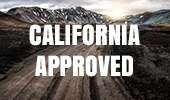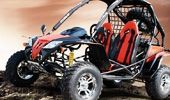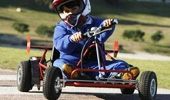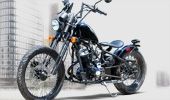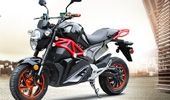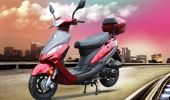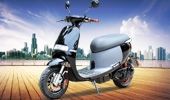When you're enjoying a nice ride on your bike, there are few things worse than experiencing a mechanical problem or breakdown in the middle of nowhere. Fortunately, there are precautions you can take to prevent such a situation. Every bike is unique, but all of them will be less likely to malfunction if they are properly maintained. Look out for the following engine problems and fix them as quickly as possible to keep your bike in tip-top working condition.
Engine Halting and Not Starting Again
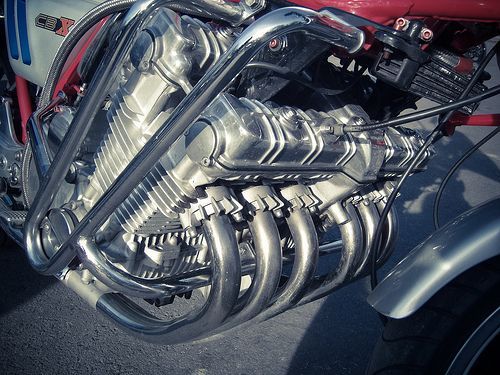
Image via Flickr by johnrobertshepherd
This is one of the most common motorcycle engine problems, and it's something that almost every rider has experienced at one point or another. It usually occurs during winter, especially in bikes that aren't used regularly.
There are several factors that can cause a motorcycle's engine to stop and not start again. The main reason is that fuel isn't flowing properly to the engine. In this situation, you may be able to start the engine by simply closing the choke in the carburetor.
If the issue persists, you need to check the fuel line to see if it's leaking or damaged. Low-quality fuel can ruin the fuel system, which can prevent the engine from starting. If the fuel line is in good condition, take a look at the spark plugs. Make sure they are producing enough spark to ignite the engine. If none of these is the cause of the problem, then you probably have a bad coil or a more severe engine problem, which in most cases requires the attention of a mechanic.
If your engine suddenly stops working while you're on the road, the first thing you need to do is park your motorcycle in a safe place. Then, inspect the aforementioned components to see if there's a problem. If your bike uses CDI ignition, find out if it's getting the amount of current it needs.
Your motorcycle's engine may also stop working if it's overheated. This may happen when you ride a low-cc bike at a high speed for an extended amount of time. If this is the case, you should give the engine some time to cool down.
2. Poor Throttle Response
Throttle response has a direct impact on your motorcycle's ride quality. Poor throttle response may result from a number of causes, one of which is improper engine tuning. The engine tends to feel snatchy when it's running lean at low rpm. In this case, it'll need a lot of choke and take some time to warm up. When it's running rich, it may feel fluffy and slow, as if it's too lazy to rev. If the balance is just right, your bike will feel alive and eager. Therefore, you have to make sure your engine is properly tuned.
Additionally, throttle problems can happen if your throttle is broken. You may have a damaged throttle after you carelessly drop your bike on the right side or get involved in a collision. If your throttle is badly damaged and can't be repaired, you may have to replace it with a new one.
Poor routine maintenance may also affect throttle performance. Over time, dirt and debris will build up around the throttle's tube and housing, causing it to become sticky. Also, the throttle cable can become worn, stretched, or damaged. To ensure that your throttle will function optimally, you need to perform proper maintenance on a regular basis and get a mechanic to inspect your bike every now and then.
3. Detonation
Detonation is one of the most potentially destructive motorcycle engine problems. It refers to the premature ignition of the fuel charge in the cylinder, which results from high fuel mixture temperature and compression. If left unattended, stresses and high temperatures in the combustion chamber can cause damage to the pistons, head components, crank bearings, and cylinder walls. Your motorcycle may have a detonation problem if it emits a barely perceptible pinging sound or its engine keeps running for a while after the ignition is turned off.
In the past, detonation was a condition that affected high-compression, air-cooled racing engines. However, it can also happen to modern consumer-oriented engines. It's more likely to occur in high-compression engines that run on low-octane fuel. If your bike has a high-compression engine, you can prevent detonation by using high-octane fuel. Contrary to popular belief, this type of fuel doesn't have a higher level of energy than low-octane fuel. Nonetheless, it has better high-temperature stability, which makes it more effective in resisting detonation.
4. High Fuel Consumption
This is something that concerns every biker as the cost of fuel has increased significantly in recent years. The main factor affecting fuel consumption is the way you ride your bike. You can save fuel by riding at a constant speed and shifting gears properly.
Bad carburetor tuning can also contribute to high fuel consumption. You can either tune your carburetor yourself or leave the task in the hands of a trained mechanic. If you choose to do it yourself, you need to slowly turn the fuel screw on the carburetor until the engine rpm becomes constant, which is the ideal setting for the engine. Besides improving fuel efficiency, a perfectly tuned carburetor also improves your bike's performance and helps it start smoothly.
Another thing you can do to get better mileage is change your engine oil regularly. Other aspects of your motorcycle that have an impact on fuel economy include the clutch plates, radials, chain sprockets, brake shoes, drums, bearings, and tires. Make sure all these components are in good condition.
Motorcycle engine problems can range from mild to severe. While some problems can be easily and inexpensively fixed, others may develop into major problems that can cause significant damage to your bike and put a big dent in your wallet. Regardless of whether your bike has a small or big mechanical problem, you should fix it as soon as it's detected. Routine maintenance and inspection can go a long way in helping you prevent motorcycle engine problems.






